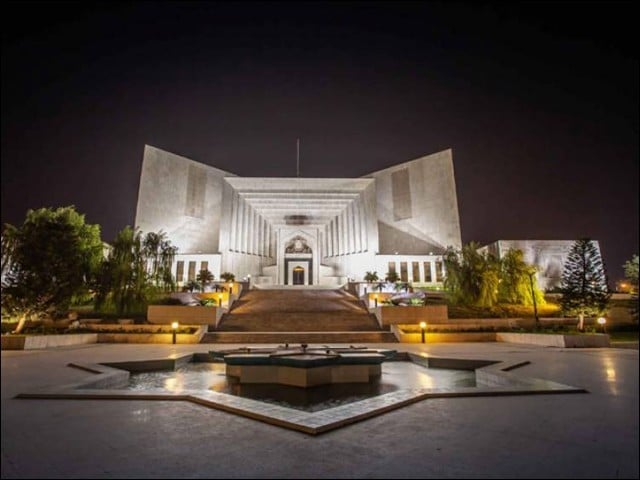Retiree discipline cases must conclude within two years
SC says competent authority must act within this timeframe from employee retirement date

The top court has reiterated that the mandatory obligation on the competent authority to finalize disciplinary proceedings against a retired government employee is not later than two years from the date of his retirement.
A three-judge bench of the apex court led by Justice Yahya Afridi posed a question whether the disciplinary proceedings could be validly initiated against the appellant after a lapse of more than two years from the date of his retirement, in light of the provisions of Section 21 of the PEEDA Act, 2006.
The respondent was posted as executive engineer, Rawal Dams Division, Islamabad. The disciplinary proceedings were initiated against him after a show cause notice dated 24.02.2020 was issued to him under Section, 1.8(a) of the Pension Rules 1963 after three years of his retirement.
He was accused of inefficiency, misconduct, and corruption.
Read SC rules for timely conclusion of retired employees’ cases
An investigation committee comprising members of the petitioner department was constituted to proceed against the respondent.
The committee submitted its report on 16.11.2020 recommending a penalty of recovery of Rs.5.5 million from the respondent’s pension.
Subsequently, after giving the respondent an opportunity of personal hearing by the secretary to the Punjab government, Agriculture Department (the competent authority), a
major penalty to recover Rs.5.5 million from his pension was awarded by an order dated 26.7.2021.
Aggrieved by the order, the respondent filed a review petition before the Punjab chief minister which was still pending when he filed an appeal in the tribunal.
The tribunal allowed the respondent’s appeal vide impugned order dated 22.02.2022 and set aside the departmental order dated 26.7.2021 directing the authority to grant all pensionary benefits accrued during such period to the respondent.
However, the Punjab Irrigation Department challenged the tribunal judgement in the apex court. The top court upheld the tribunal’s decision.
Justice Musarrat Hilali while authoring the judgement noted that Section 21 of the PEEDA Act 2006 unequivocally stated that proceedings against a retired employee shall be governed by the provisions of the Act and the rules made thereunder.
"Furthermore, the proviso to Section 21 imposes a mandatory obligation on the competent authority to finalize proceedings against a retired employee not later than two years from the date of his retirement. Additionally, Section 20 of the PEEDA Act, 2006, explicitly provides that the provisions of the Act shall have an overriding effect contrary to any other law for the time being in force. This effectively nullifies any other law that may contradict or seek to supersede the provisions of the PEEDA Act 2006," Justice Hilali referred to 2021 judgement wherein it was held that the primary aim of the Act was to improve the efficiency, discipline, and accountability of employees in the government and corporate sector to achieve good governance.
"The Act primarily focuses on serving employees and recognizes retired employees only if departmental proceedings have been initiated against them either in service or within one year after their retirement.
"The Act sets a specific timeframe for finalizing departmental proceedings against retired employees, i.e., not later than two years from the date of their retirement.
"The proviso to Section 21 of the Act contains negative phrase that have an imperative effect, making it mandatory to conclude the proceedings against a retired employee within the prescribed timeframe."
The judgement said that in present case it was evident from the record that the disciplinary proceedings against the respondent initiated under Rule 1.8(a) of the Pension Rules 1963 were in violation of Section 21 of the PEEDA Act 2006, which is a mandatory provision.
"As the respondent stood retired on 10.01.2017 and disciplinary proceedings were initiated against him on 24.2.2020, which was beyond the statutory period prescribed by the proviso to Section 21 of the PEEDA Act, 2006."



















COMMENTS
Comments are moderated and generally will be posted if they are on-topic and not abusive.
For more information, please see our Comments FAQ